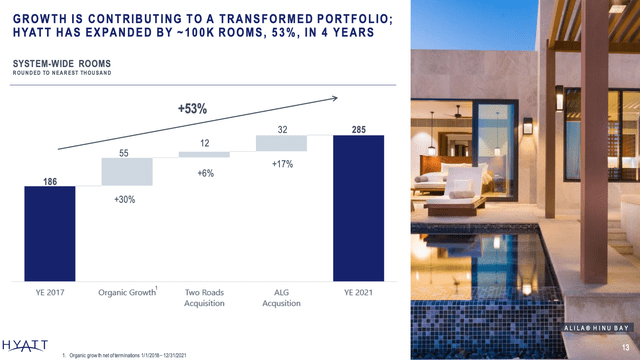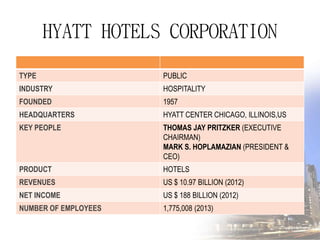What Hotel Group Is Hyatt Explained Here. Hyatt Hotels Corporation is one of the most recognized names in the hospitality industry, offering a wide range of luxury and upscale accommodations across the globe. Founded in 1957, the company has grown to become a major player in the hotel sector, with a diverse portfolio that includes several well-known brands such as Hyatt Regency, Park Hyatt, Grand Hyatt, and Hyatt Place. Understanding which hotel group Hyatt belongs to is essential for travelers, investors, and those interested in the hospitality industry. Hyatt is part of the broader hospitality sector, but it operates independently as a publicly traded company listed on the New York Stock Exchange under the ticker symbol HY. This distinction sets it apart from other large hotel chains like Marriott International or Hilton Worldwide, which are also significant players in the market.
The History and Evolution of Hyatt
Hyatt’s journey began in the 1950s when entrepreneur Donald Hyatt opened the first Hyatt House in Burbank, California. The concept was simple: provide clean, comfortable, and affordable lodging for business travelers. Over the years, the brand expanded rapidly, opening more locations and introducing new concepts. By the 1960s, Hyatt had established itself as a leader in the mid-range hotel market. However, it wasn’t until the late 20th century that the company started to diversify its offerings, launching luxury brands like Park Hyatt and Grand Hyatt to cater to high-end travelers. This strategic move allowed Hyatt to compete with other global hotel chains while maintaining its unique identity. Today, Hyatt continues to evolve, adapting to changing consumer preferences and technological advancements in the hospitality industry.
Hyatt’s Brand Portfolio and Market Position
One of the key factors that define Hyatt as a hotel group is its extensive brand portfolio. The company manages over 1,300 properties in more than 60 countries, offering a variety of options for different types of travelers. From budget-friendly options like Hyatt Place to ultra-luxurious stays at Park Hyatt, Hyatt caters to a broad audience. This diversity allows the company to remain competitive in an ever-changing market. Additionally, Hyatt has made significant investments in digital innovation, including mobile check-in, smart room technology, and personalized guest experiences. These efforts have helped the company stay relevant in an industry that is increasingly driven by technology. Furthermore, Hyatt has expanded its presence through strategic acquisitions, such as the purchase of the Miraval Resorts and the development of the Thompson Hotels brand. These moves have strengthened its position in the luxury segment of the market.
How Hyatt Stands Out in the Hospitality Industry

While many hotel groups focus on mass-market appeal, Hyatt has carved out a niche by emphasizing quality, service, and guest experience. Unlike some competitors that prioritize rapid expansion, Hyatt takes a more measured approach, focusing on long-term value and brand integrity. This philosophy has led to a loyal customer base and a strong reputation for reliability. Additionally, Hyatt has been proactive in addressing sustainability and social responsibility, implementing eco-friendly practices across its properties. Initiatives such as energy-efficient operations, waste reduction programs, and community engagement efforts have positioned the company as a responsible corporate citizen. These values resonate with modern travelers who are increasingly conscious of their environmental impact. Moreover, Hyatt’s commitment to employee development and training ensures that guests receive consistent, high-quality service across all locations.
Key Partnerships and Collaborations

Hyatt’s success is also attributed to its strategic partnerships and collaborations with other industry leaders. The company has formed alliances with travel agencies, airlines, and loyalty programs to enhance the guest experience. For example, Hyatt is part of the World of Hyatt loyalty program, which offers members exclusive benefits such as free nights, upgrades, and access to private events. These partnerships not only increase customer retention but also expand Hyatt’s reach in the global market. Additionally, Hyatt has collaborated with renowned designers and architects to create unique hotel experiences that reflect local culture and aesthetics. These collaborations have resulted in iconic properties such as the Grand Hyatt Tokyo and the Park Hyatt Sydney, which are celebrated for their design and ambiance. Such efforts further solidify Hyatt’s reputation as a premium hotel brand.
Future Outlook for Hyatt

As the hospitality industry continues to recover from the challenges of the past few years, Hyatt is well-positioned for future growth. The company has already begun to see an uptick in demand, particularly in the leisure and business travel sectors. With a strong balance sheet and a diversified portfolio, Hyatt is equipped to navigate economic fluctuations and market shifts. Looking ahead, the company plans to invest in digital transformation, expand its presence in emerging markets, and continue refining its guest experience. These forward-thinking strategies will be crucial in maintaining Hyatt’s competitive edge in an industry that is constantly evolving. As travelers seek more personalized and meaningful experiences, Hyatt’s focus on quality and innovation will likely ensure its continued success in the years to come.



